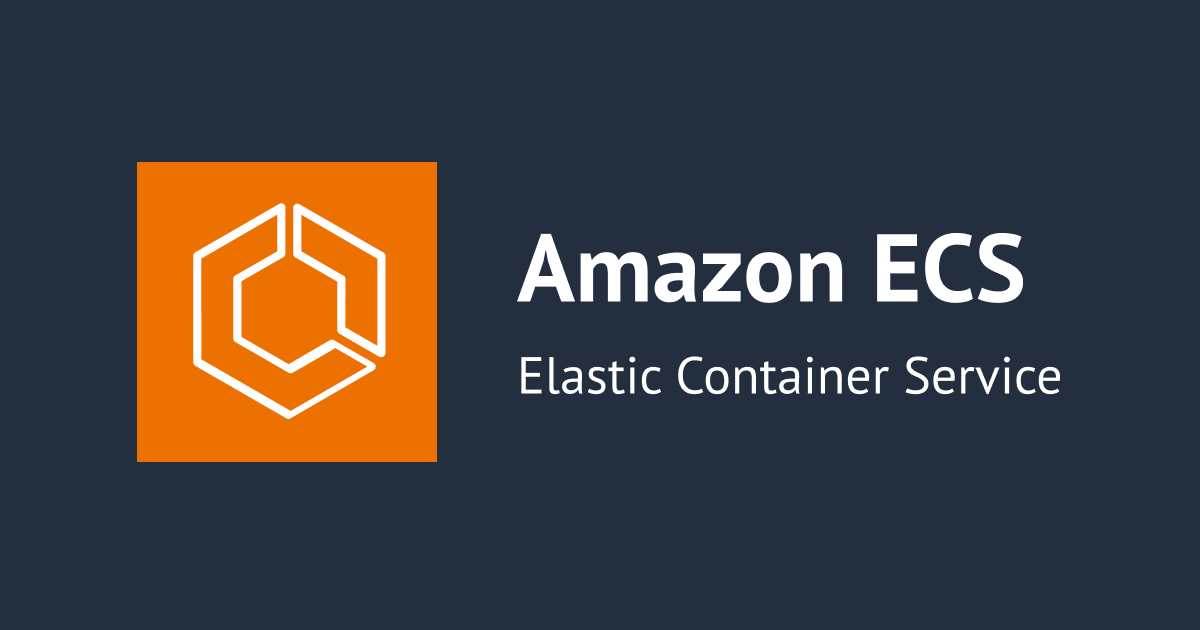
ECS で特定クラスタータイプのリソースにのみアクセスを限定するカスタマー管理ポリシーを教えてください
この記事は公開されてから1年以上経過しています。情報が古い可能性がありますので、ご注意ください。
困っていること
ECS のリソースを管理するため AmazonECS_FullAccess ポリシーを参考にしつつ、特定のクラスタータイプのリソースにのみアクセスを限定するカスタマー管理ポリシーを作成したいです。
教えてください。
どう対応すればいいの?
下記のカスタマー管理ポリシー例を参考にお試しください。
Resource 句に指定する ARN の記述方法については、ドキュメント 記載 ARN の記述例を参考にしてください。
cluster arn:${Partition}:ecs:${Region}:${Account}:cluster/${ClusterName}
{
"Version": "2012-10-17",
"Statement": [
{
"Sid": "VisualEditor0",
"Effect": "Allow",
"Action":[
"application-autoscaling:DeleteScalingPolicy",
"application-autoscaling:DeregisterScalableTarget",
"application-autoscaling:DescribeScalableTargets",
"application-autoscaling:DescribeScalingActivities",
"application-autoscaling:DescribeScalingPolicies",
"application-autoscaling:PutScalingPolicy",
"application-autoscaling:RegisterScalableTarget",
"appmesh:DescribeVirtualGateway",
"appmesh:DescribeVirtualNode",
"appmesh:ListMeshes",
"appmesh:ListVirtualGateways",
"appmesh:ListVirtualNodes",
"autoscaling:CreateAutoScalingGroup",
"autoscaling:CreateLaunchConfiguration",
"autoscaling:DeleteAutoScalingGroup",
"autoscaling:DeleteLaunchConfiguration",
"autoscaling:Describe*",
"autoscaling:UpdateAutoScalingGroup",
"cloudformation:CreateStack",
"cloudformation:DeleteStack",
"cloudformation:DescribeStack*",
"cloudformation:UpdateStack",
"cloudwatch:DeleteAlarms",
"cloudwatch:DescribeAlarms",
"cloudwatch:GetMetricStatistics",
"cloudwatch:PutMetricAlarm",
"codedeploy:BatchGetApplicationRevisions",
"codedeploy:BatchGetApplications",
"codedeploy:BatchGetDeploymentGroups",
"codedeploy:BatchGetDeployments",
"codedeploy:ContinueDeployment",
"codedeploy:CreateApplication",
"codedeploy:CreateDeployment",
"codedeploy:CreateDeploymentGroup",
"codedeploy:GetApplication",
"codedeploy:GetApplicationRevision",
"codedeploy:GetDeployment",
"codedeploy:GetDeploymentConfig",
"codedeploy:GetDeploymentGroup",
"codedeploy:GetDeploymentTarget",
"codedeploy:ListApplicationRevisions",
"codedeploy:ListApplications",
"codedeploy:ListDeploymentConfigs",
"codedeploy:ListDeploymentGroups",
"codedeploy:ListDeployments",
"codedeploy:ListDeploymentTargets",
"codedeploy:RegisterApplicationRevision",
"codedeploy:StopDeployment",
"ec2:AssociateRouteTable",
"ec2:AttachInternetGateway",
"ec2:AuthorizeSecurityGroupIngress",
"ec2:CancelSpotFleetRequests",
"ec2:CreateInternetGateway",
"ec2:CreateLaunchTemplate",
"ec2:CreateRoute",
"ec2:CreateRouteTable",
"ec2:CreateSecurityGroup",
"ec2:CreateSubnet",
"ec2:CreateVpc",
"ec2:DeleteLaunchTemplate",
"ec2:DeleteSubnet",
"ec2:DeleteVpc",
"ec2:Describe*",
"ec2:DetachInternetGateway",
"ec2:DisassociateRouteTable",
"ec2:ModifySubnetAttribute",
"ec2:ModifyVpcAttribute",
"ec2:RequestSpotFleet",
"ec2:RunInstances",
"ecs:*",
"elasticfilesystem:DescribeAccessPoints",
"elasticfilesystem:DescribeFileSystems",
"elasticloadbalancing:CreateListener",
"elasticloadbalancing:CreateLoadBalancer",
"elasticloadbalancing:CreateRule",
"elasticloadbalancing:CreateTargetGroup",
"elasticloadbalancing:DeleteListener",
"elasticloadbalancing:DeleteLoadBalancer",
"elasticloadbalancing:DeleteRule",
"elasticloadbalancing:DeleteTargetGroup",
"elasticloadbalancing:DescribeListeners",
"elasticloadbalancing:DescribeLoadBalancers",
"elasticloadbalancing:DescribeRules",
"elasticloadbalancing:DescribeTargetGroups",
"events:DeleteRule",
"events:DescribeRule",
"events:ListRuleNamesByTarget",
"events:ListTargetsByRule",
"events:PutRule",
"events:PutTargets",
"events:RemoveTargets",
"fsx:DescribeFileSystems",
"iam:ListAttachedRolePolicies",
"iam:ListInstanceProfiles",
"iam:ListRoles",
"lambda:ListFunctions",
"logs:CreateLogGroup",
"logs:DescribeLogGroups",
"logs:FilterLogEvents",
"route53:CreateHostedZone",
"route53:DeleteHostedZone",
"route53:GetHealthCheck",
"route53:GetHostedZone",
"route53:ListHostedZonesByName",
"servicediscovery:CreatePrivateDnsNamespace",
"servicediscovery:CreateService",
"servicediscovery:DeleteService",
"servicediscovery:GetNamespace",
"servicediscovery:GetOperation",
"servicediscovery:GetService",
"servicediscovery:ListNamespaces",
"servicediscovery:ListServices",
"servicediscovery:UpdateService",
"sns:ListTopics"
],
"Resource": "*",
"Condition": {
"Bool": {
"aws:MultiFactorAuthPresent": "true"
}
}
},
{
"Sid": "VisualEditor1",
"Effect": "Allow",
"Action": "ecs:*",
"Resource": [
"arn:aws:ecs:ap-northeast-1:123456789012:container-instance/sample-test/*",
"arn:aws:ecs:ap-northeast-1:123456789012:task/sample-test/*",
"arn:aws:ecs:ap-northeast-1:123456789012:cluster/sample-test",
"arn:aws:ecs:ap-northeast-1:123456789012:task-set/sample-test/*/*",
"arn:aws:ecs:ap-northeast-1:123456789012:task-definition/sample-test-task:*",
"arn:aws:ecs:ap-northeast-1:123456789012:capacity-provider/*",
"arn:aws:ecs:ap-northeast-1:123456789012:service/sample-test/*"
],
"Condition": {
"Bool": {
"aws:MultiFactorAuthPresent": "true"
}
}
}
]
}
リソースタグによる制御
IAM ポリシーにてアクセス可能のリソースを制限する際、Condition 要素で指定したタグと同じタグがつけられているリソースへのアクセスに限定することが可能です。 代替案としてご検討ください。
最小特権の原則
参考とする AmazonECS_FullAccess ポリシーは他の AWS サービスのアクションも含まれています。
対象の IAM エンティティが作業に必要な最小限のアクションを特定して、カスタマー管理ポリシーを作成することをお勧めします。
IAM ポリシーでアクセス許可を設定するときは、タスクの実行に必要なアクセス許可のみを付与します。これを行うには、特定の条件下で特定のリソースに対して実行できるアクションを定義します。これは、最小特権アクセス許可とも呼ばれています。その際、ワークロードやユースケースに必要なアクセス許可を検討しながら、大まかなアクセス許可から始めるとよいでしょう。ユースケースが成熟してきたら、最小特権になるように付与する権限を減らしていくことができます。IAM を使用してアクセス許可を適用する方法については、「IAM でのポリシーとアクセス許可」を参照してください。








